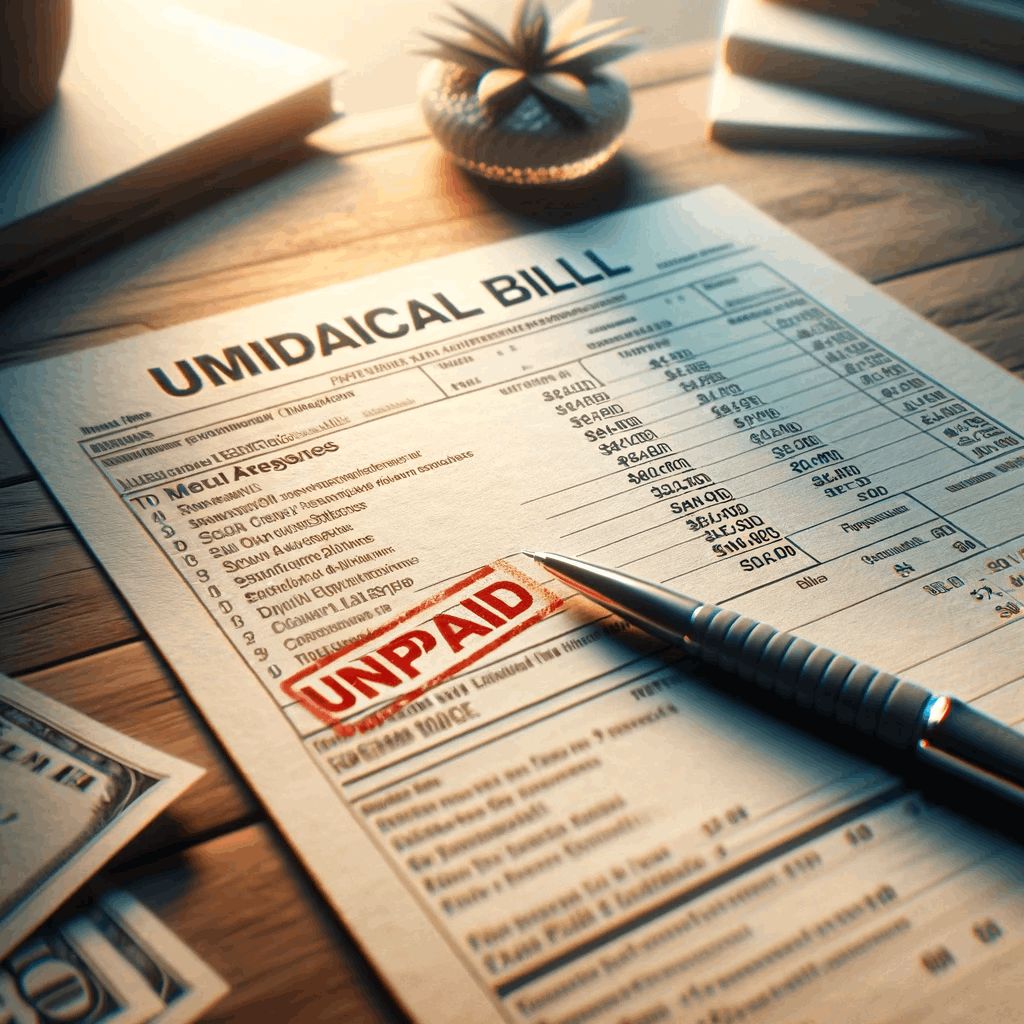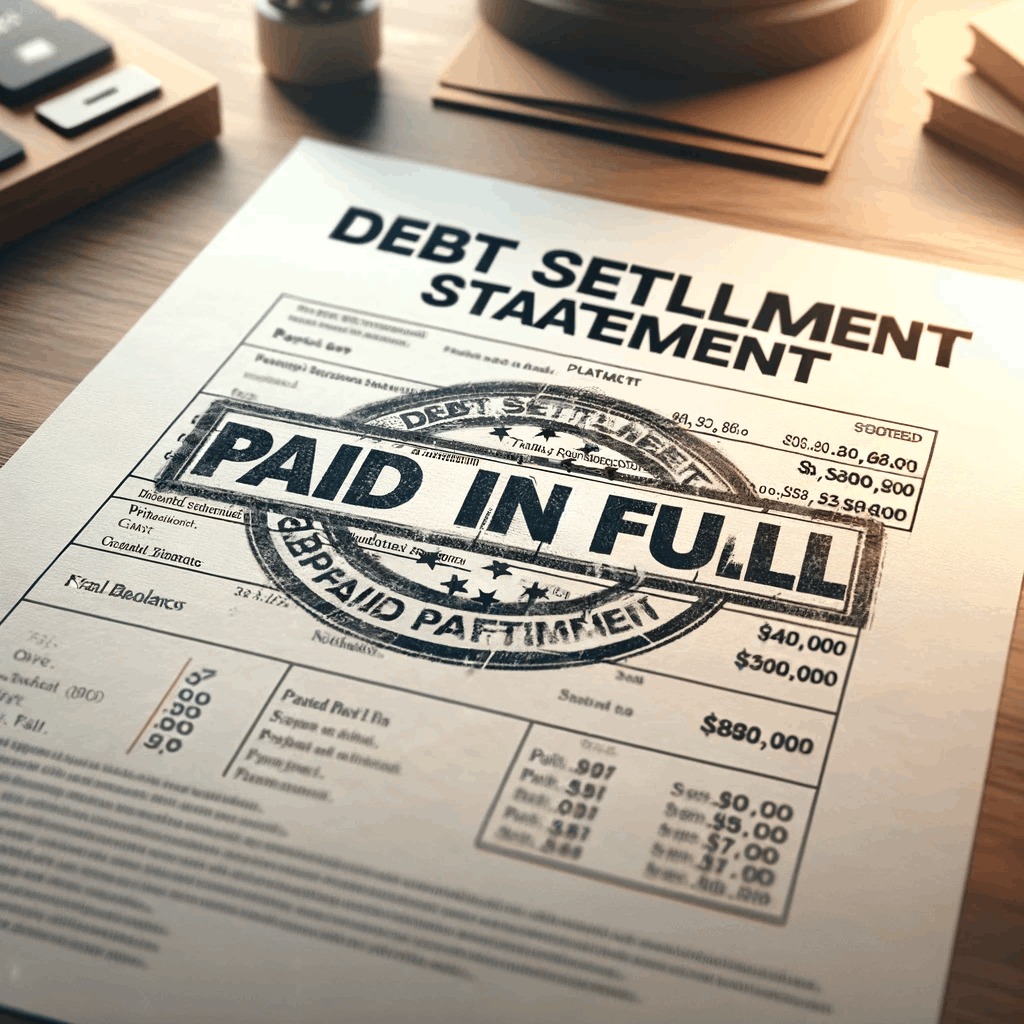Collection agency debt is a prevalent issue in today's financial landscape, causing stress and anxiety for many.
This quick-start guide will empower you with actionable steps to effectively address and resolve your collection agency debt, ensuring a path to financial stability. Don't let debt define your future – take charge and regain control today.
Understanding Collection Agencies
A collection agency is a company creditors hire to recover debts from individuals or businesses. They use various methods to contact debtors and negotiate repayment, working on behalf of the original creditor and following legal regulations.
How Collection Agencies Operate
Collection agencies operate with a specific approach to recover debts efficiently. Here's a brief overview of how they function:
- Initial Contact: Collection agencies contact debtors via letters, emails, or phone calls to notify them about the outstanding debt.
- Verification: They review relevant documentation and confirm the debt's accuracy and validity.
- Communication: Agencies converse with debtors to establish contact and gather information about their financial situation.
- Negotiation: They often aim to negotiate a payment plan or a settlement amount acceptable to both parties.
- Record Keeping: Detailed records of all interactions and payment arrangements are maintained for legal compliance.
- Reporting: Information about the debt and its status may be reported to credit bureaus, affecting the debtor's credit score.
- Legal Action: In some cases, if negotiations fail, collection agencies may pursue legal action to recover the debt through court orders.
Understanding how collection agencies operate can help debtors navigate the process effectively.

Common Reasons for Debt Collection
Debt collection can arise from various situations, often stemming from unmet financial obligations. Here are some common reasons for debt collection:
- Unpaid Medical Bills: Medical expenses can accumulate quickly, leading to debt when paid.
- Credit Card Debt: Failure to make minimum payments on credit cards can result in debt collection efforts.
- Unfulfilled Loans: Defaulting on personal loans, student loans, or mortgages can trigger collection actions.
- Utility Bills: Delinquent utility payments, such as electricity or water bills, may lead to debt collection.
- Overdue Rent: Unpaid rent or lease payments can prompt landlords to engage collection agencies.
- Unpaid Taxes: Outstanding tax liabilities may result in collection efforts by government agencies.
- Court Judgments: Failure to satisfy legal judgments can lead to debt collection through the legal system.
- Unpaid Child Support: Delinquency in child support payments can trigger collection actions by authorities.
- Unsettled Business Debts: Businesses may face collection for unpaid invoices or loans.
Awareness of these common reasons for debt collection can help individuals and businesses proactively address their financial obligations.
Assessing Your Debt
Assessing your debt is crucial for effective financial management. Here's a concise list of critical actions to take:
- Gather Information: Collect all debt-related documents.
- Verify Debt Accuracy: Confirm debts' validity and details.
- Understand Your Rights: Know your debtor rights.
- Assess Financial Situation: Evaluate your income and expenses.
- Prioritize Debts: Identify urgent and high-interest debts.
- Create a Budget: Develop a budget for debt repayment.
- Seek Professional Guidance: Consider consulting experts for assistance.
Communicating with Collection Agencies
Effective communication with collection agencies is essential when dealing with debt. Here's a concise list of critical steps to follow when interacting with these agencies:
- Initial Contact: Respond promptly when the agency first contacts you and requests written confirmation of the debt.
- Know Your Rights: Familiarize yourself with your rights under the law, such as the Fair Debt Collection Practices Act (FDCPA) in the United States.
- Stay Calm and Respectful: Maintain a polite and professional tone during conversations and avoid confrontation.
- Keep Records: Document all interactions, including dates, times, names of representatives, and details discussed.
- Request Validation: If you have doubts about the debt's validity, request the agency to provide proof.
- Negotiate with Purpose: Be prepared to negotiate payment arrangements or settlements that you can realistically afford.
- Confirm Agreements: Get any written agreements outlining the terms and conditions of your repayment plan.
- Report Issues: If you encounter unethical practices, report them to relevant authorities or consumer protection agencies.
Following these steps can help you navigate communication with collection agencies more effectively and protect your rights as a debtor.
Negotiating a Settlement
When dealing with debt, consider these common settlement options:
- Lump-Sum Payment: Negotiate a reduced one-time payment.
- Payment Plans: Arrange structured, gradual repayments.
- Debt Consolidation: Combine debts into a single, lower-interest loan.
- Debt Management Plans (DMPs): Work with agencies for reduced rates.
- Debt Settlement Programs: Let experts negotiate lower debts.
- Bankruptcy: As a last resort, consider legal debt relief.
Tips for Successful Negotiation
Successful negotiation is vital when resolving debt. Here are five concise tips to enhance your negotiation skills:
- Be Prepared: Gather all relevant information about your debt and financial situation.
- Set Clear Goals: Define what you want to achieve through negotiation.
- Stay Calm and Polite: Maintain a respectful and composed demeanor during discussions.
- Know Your Limits: Determine the maximum payment or settlement you can afford.
- Get Agreements in Writing: Ensure all negotiated terms are documented for clarity and protection.

Paying Off Your Debt
Paying off debt is crucial for financial stability. Here are key actions to help you manage and clear your debts:
- Create a Repayment Plan: Develop a detailed plan with monthly amounts and due dates.
- Prioritize High-Interest Debts: Focus on high-interest debts first to save money.
- Increase Income: Explore extra income opportunities like part-time work.
- Cut Expenses: Reduce non-essential spending to free up money for debt.
- Choose a Strategy: Pick a debt repayment method that suits your goals.
- Track Progress: Monitor your debt reduction and adjust as needed.
- Celebrate Milestones: Reward yourself for hitting debt payoff goals.
- Avoid New Debt: Commit to responsible financial behavior to prevent more debt.
Protecting Your Credit
Safeguarding your credit is vital for your financial well-being. Here are essential steps to help you protect and maintain a healthy credit score:
- Check Your Credit Report Regularly: Monitor your credit report for errors or inaccuracies.
- Pay Bills on Time: Timely payments are crucial for a positive credit history.
- Use Credit Wisely: Avoid maxing out credit cards and maintain low credit utilization.
- Limit New Credit Applications: Apply for new credit sparingly to minimize inquiries.
- Keep Old Accounts Open: Maintain older accounts to extend your credit history.
- Diversify Credit Types: Utilize a mix of credit types to improve your credit score.
- Set Up Payment Reminders: Use technology to stay on top of due dates and avoid late payments.
Legal Considerations
Understanding legal aspects when dealing with debt is crucial to protecting your rights:
- Know Your Rights: Learn about your rights under laws like the FDCPA.
- Statute of Limitations: Be aware of state-specific debt time limits.
- Seek Legal Advice: Consult an attorney for complex debt matters.
- Document Communication: Keep records of interactions for potential legal action.
- Bankruptcy Options: Understand the legal implications and consequences of bankruptcy.
- Report Violations: Report debt collection law violations to authorities.
- Comply with Court Orders: Follow court orders if legal action is taken against you.
Concluding Thoughts on Resolving Collection Agency Debt
In conclusion, tackling collection agency debt requires diligence, knowledge, and proactive steps.
By following this quick-start guide, you can take control of your financial situation, navigate the complexities of debt resolution, and work toward a more stable and debt-free future.
Remember that resolving debt may take time and effort, but with the right strategies, you can achieve your financial goals and regain your financial freedom.



